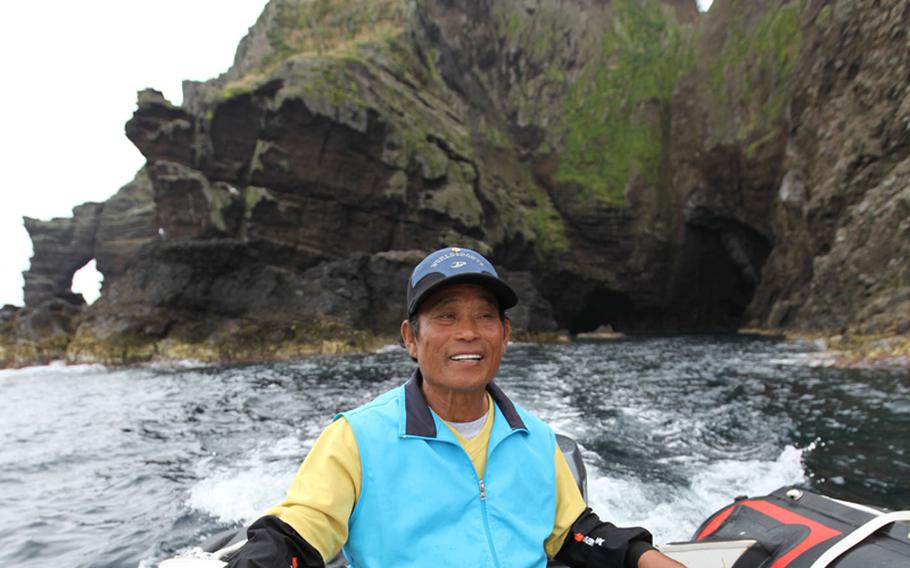
Fisherman Kim Seong-do, 72, takes his boat around the desolate Dokdo island where he first moved in 1962 looking for solitude and a good catch. (Matt Douma/Los Angeles Times/MCT)
SEOUL - The Japanese ambassador to South Korea acknowledged Tuesday that bilateral tensions have risen to their highest point in years but said both countries should make sure that historical grievances don't rise to the level of diplomatic disputes.
"If there is an issue, I think it's very important that we don't politicize it," Ambassador Koro Bessho told an Asia Society luncheon in Seoul.
He avoided mentioning by name the two issues that have strained relations between the key U.S. allies during the past year: the ownership of two islets about halfway between the two countries, and the Japanese use of sex slaves during its 35-year colonial rule of South Korea, which ended in 1945.
The debate over the islands - called Dokdo in South Korea and Takeshima in Japan - emerged as a key political issue last year, particularly after South Korean President Lee Myung-bak made a controversial visit to the islands in August. Lee urged Japan to take responsibility for its imperial past during a speech days after the first visit by a South Korean president to the disputed territory.
"Japan is a close neighbor. It is also a close ally that shares the same values and it is also an important partner," he said. "However, it needs to be pointed out that the shackles of Japan's past hold back the move towards the future, not only for Korea and Japan but for the northeast Asian community in general."
The U.S. refers to the islands as the Liancourt Rocks and has largely maintained neutrality on the issue.
Japan has apologized for its enslavement of South Korean "comfort women," but those apologies are perceived as being inadequate and insincere by many South Koreans.
Bessho said a 2012 government survey on attitudes toward other countries showed that the percentage of Japanese who felt friendly toward South Korea nosedived to 40 percent from 60 percent a year earlier.
However, he said the two countries remain key economic partners and share key security concerns, including North Korea.
He said he did not have a solution for resolving the historical and territorial disagreements, but "the important thing is that we understand our differences and that we try to manage the relationship."
Many South Koreans see Japan's insistence that it owns Dokdo/Takeshima as a sign of future expansionist goals. Bessho said South Korean media reports warning that Japan plans to become a "military giant" are incorrect and Japan is committed to contributing to international security by peaceful means.